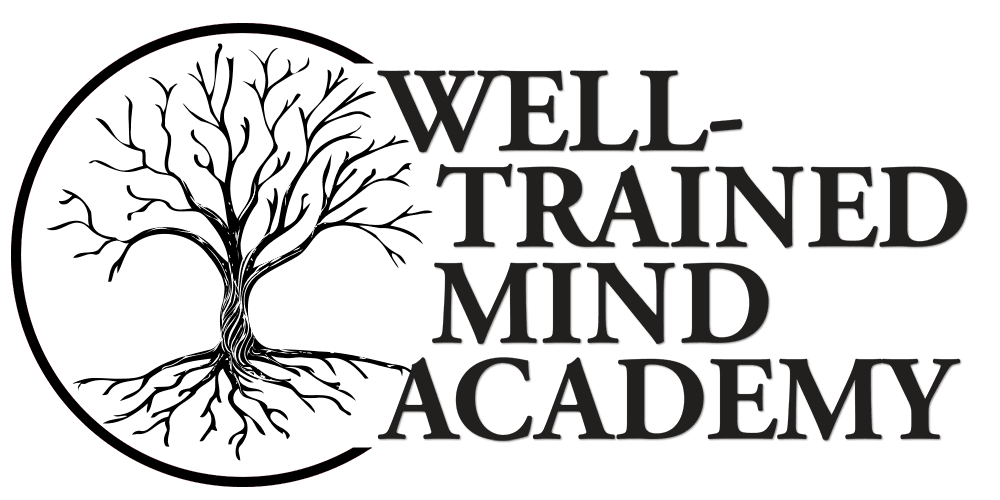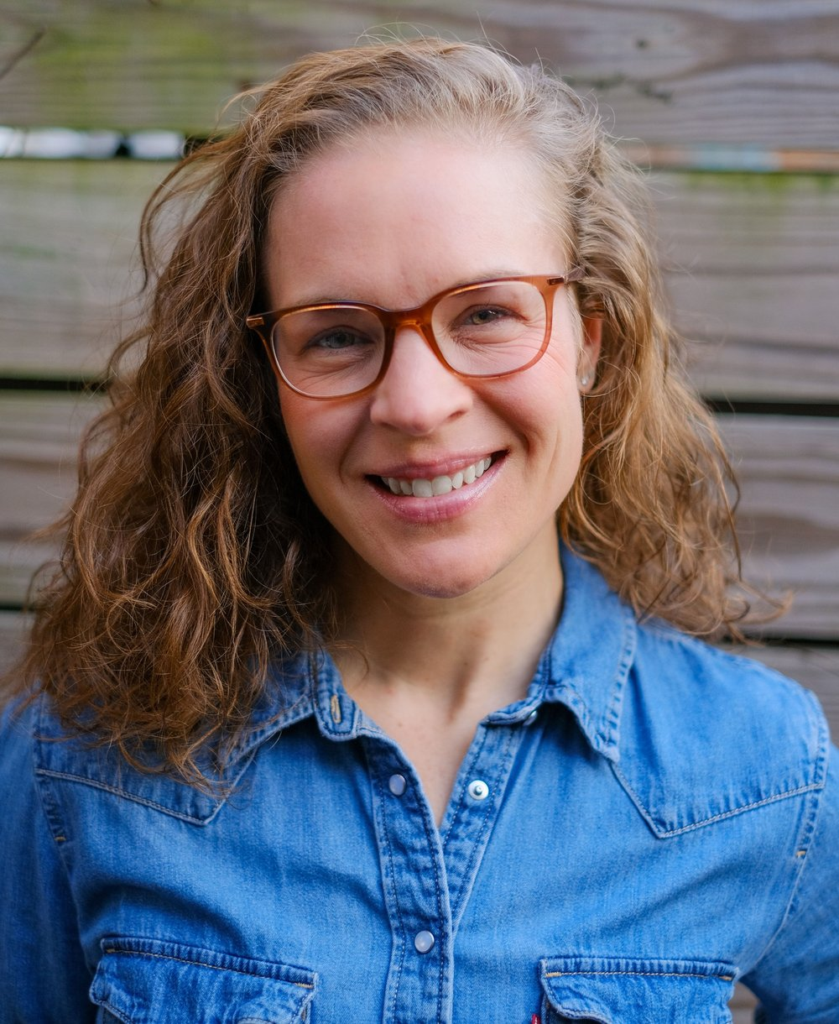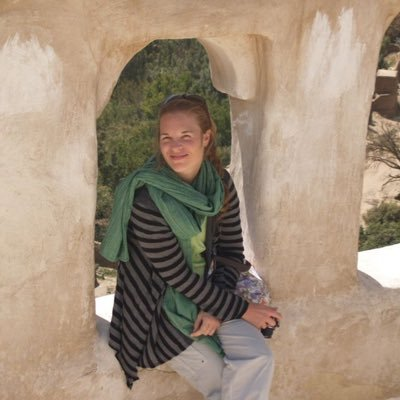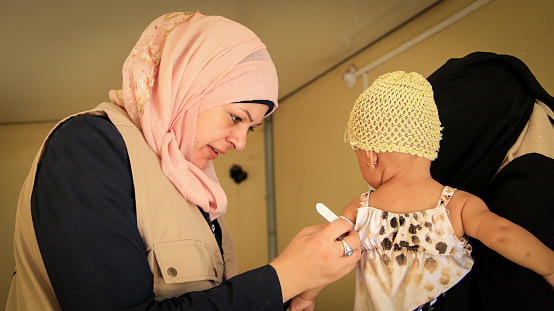Exploring Global Humanitarian Work: Victoria Stanski Inspires WTMA Students
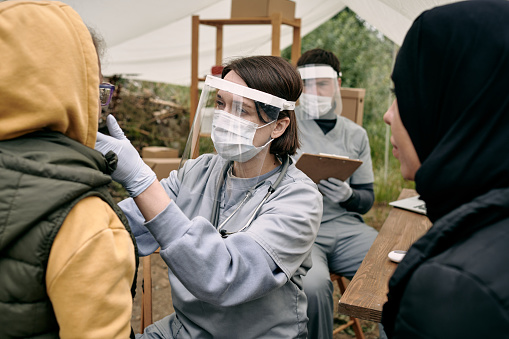
Well-Trained Mind Academy offers a well-rounded education that goes beyond textbooks, and WTMA class cohort students recently had the incredible opportunity to meet Victoria Stanski, a seasoned humanitarian aid worker.
Ms. Stanski shared insights with students drawing from her past two decades of working on international peacebuilding and humanitarian issues. Ms. Stanski’s visit gave our students a chance to learn firsthand how individuals and organizations are providing emergency relief and lifesaving assistance to displaced communities, helping to make a positive impact around the world.
Contents
Defining Humanitarian Assistance for WTMA Students
Ms. Stanski began by explaining what humanitarian assistance is—critical aid like food, shelter, health services, and education for people affected by natural disasters, violent conflict, or climate change. She emphasized that those most in need are often families who face shocks caused by political, economic, or environmental changes. Vulnerable populations, especially women and children, face heightened risks, often lacking basic necessities.
She outlined the multiple forms of aid that make up a comprehensive response that are adapted based on the contextual needs, including:
- Health services: Mobile and stationary clinics to provide primary and secondary medical care.
- Water, sanitation, and hygiene (WASH): Clean water, toilets, and hygiene supplies.
- Nutrition assistance: Supplements and medical support, like plumpy nut packets, for malnourished children.
- Food security: Essential items based on the culture, like beans, rice, and oil.
- Shelter: Temporary housing or rental assistance for displaced families.
- Non-food items: Blankets, mattresses, buckets, tarps, and other daily essentials.
- Protection: Safeguarding vulnerable groups, particularly women and children and people with special needs.
- Education: Temporary schools to help children continue their education.
- Cash assistance: Financial support for families to access necessities.
Displaced communities are asked what they need and organizations mobilize to provide multiple, various types of assistance. This holistic approach ensures that individuals receive the resources they need to survive and ultimately rebuild their lives with dignity.
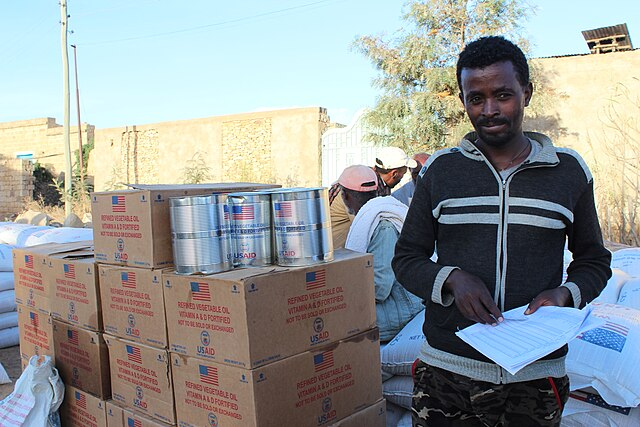
The Importance of Collaboration in Global Humanitarian Work
A key point in Ms. Stanski’s talk was the emphasis on collaboration. Humanitarian work relies heavily on partnerships—governments, United Nations, international and local non-governmental organizations, local leaders and communities must work together to deliver the aid. WTMA students asked about how groups like the Red Cross and Save the Children collaborate with local schools, places of worship, and community leaders to ensure aid reaches those in need.
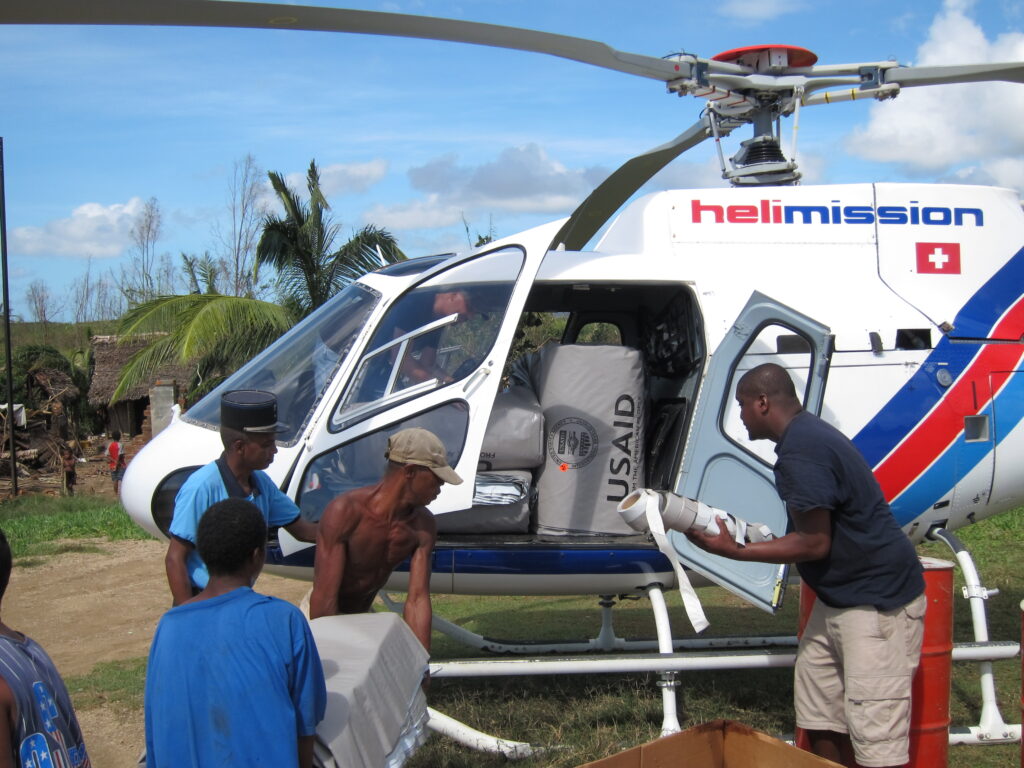
Humanitarian Stories from the Field: Lessons in Resilience
Ms. Stanski shared powerful stories from her work in countries like Pakistan, Yemen, and Lebanon, where she faced security issues that impacted the delivery of assistance to local communities.
She also had to navigate numerous cultural dynamics within the teams that she managed. Her perseverance, empathy, and respect for others allowed her to overcome barriers and enable the teams to successfully implement projects like rebuilding schools and constructing flood barriers to protect vulnerable populations.
Advice for Future Humanitarians
Ms. Stanski offered advice for students considering careers in international relations and humanitarian aid. She encouraged them to “Do what gives you energy,” urging them to pursue paths that align with their passions and strengths. She also stressed the importance of developing practical skills like writing and public speaking, as well as building cross-cultural understanding, and most important being open to unexpected opportunities.
Inspiring the Next Generation of Humanitarians at WTMA
Ms. Stanski’s visit left WTMA students not just inspired, but also equipped with resources to explore humanitarian work further. Many expressed renewed enthusiasm for considering academic paths in international relations or learning negotiation and peacebuilding skills.
At Well-Trained Mind Academy, we are proud to provide opportunities like these, where students connect with professionals who are making a real difference in the world. Victoria Stanski’s visit reminded us all of the power of compassion, resilience, and the drive to help others—lessons that will stay with our students as they shape their futures.
